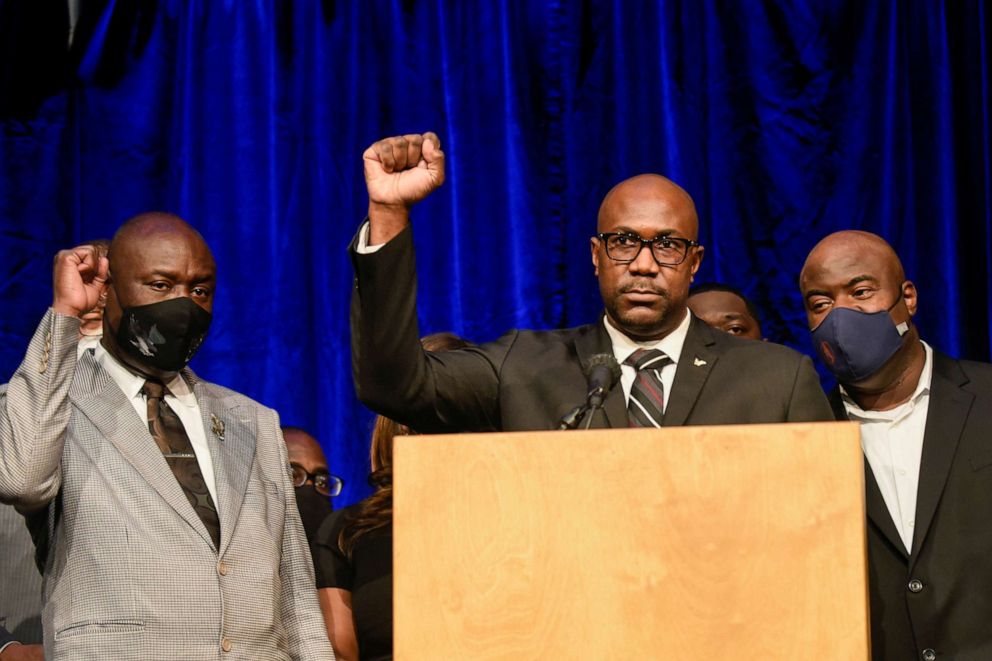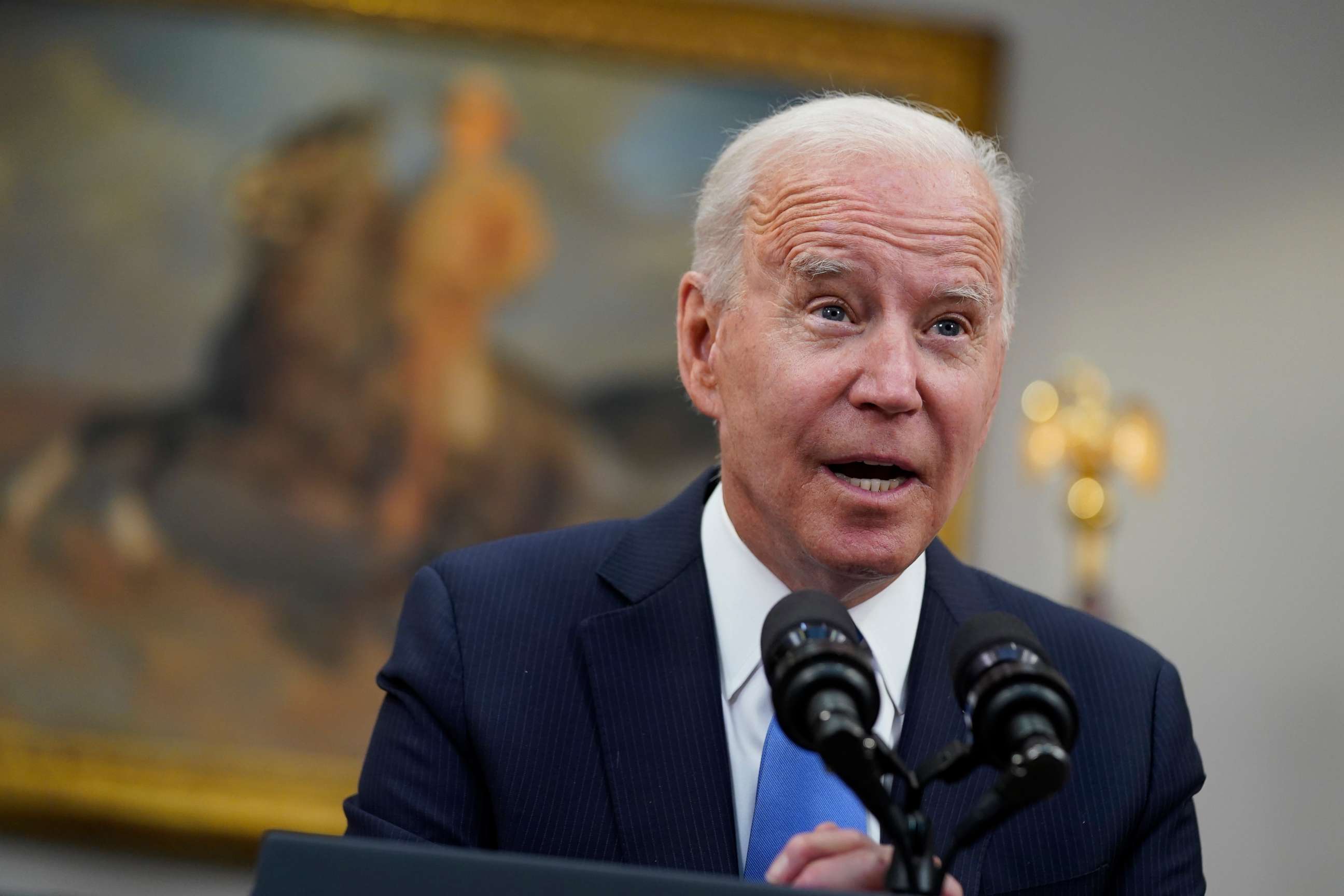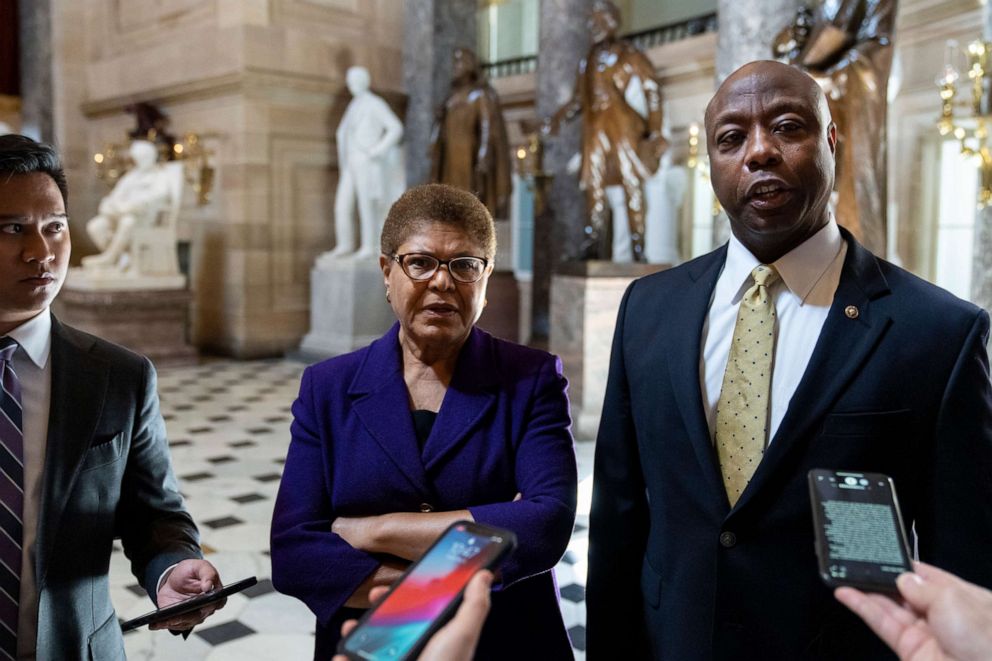Biden to meet privately with Floyd family as policing reform remains a challenge
Lawmakers have failed to meet the deadline he set in his address to Congress.
President Joe Biden is set to meet with members of George Floyd's family at the White House Tuesday, to commemorate the one-year anniversary of Floyd's death while in police custody in Minneapolis.

Remembering George Floyd
A year after George Floyd was killed, ABC News dives into the cataclysmic, generation-defining moment that led to change around the world.
The meeting, which will happen behind closed doors at the White House, will provide an opportunity for Biden to have a "real conversation" with the family, press secretary Jen Psaki said Monday.
But even as Biden will take in the family's hopes and concerns around police brutality, the political reality for Biden is a stark one: one year after an event he described as "a wake-up call to the nation" to address issues of policing reform and criminal justice, little has changed.
"We want something coming out of Washington. We want something that will change federal law," the Rev. Al Sharpton, an advocate of police reform and adviser to the Floyd family, said at a rally in Minneapolis Sunday. "There's been an adjournment on justice for too long. It's time for them to vote and make this the law."
Watch "After Floyd: The Year that Shook the World -- A Soul of a Nation Special" streaming now on Hulu
Among those attending the White House meeting are Floyd's siblings Terrence, Philonise, Bridget and Rodney, as well as Floyd's daughter Gianna, who once told Biden her father would "change the world."

"Daddy did change the world," Biden said to Gianna in a phone call after former police officer Derek Chauvin was found guilty in April of three charges for his role in Floyd's death.
But on Sunday, Floyd's sister Bridget made clear at the rally in Minneapolis that the family is still hurting, as the effort to enact real policing reform has stalled.
"It has been a long year. It has been a painful year," Floyd said. "It has been very frustrating for me and my family for our lives to change in the blink of an eye -- I still don't know why."
The House passed the George Floyd Justice in Policing Act in March. It aims to increase law enforcement accountability by ending no-knock warrants, banning chokeholds, creating a national registry for police misconduct and seeking to end qualified immunity. However, it has yet to be considered in the Senate, where it would need support from at least 10 Republicans to pass.
A trio of bipartisan lawmakers -- Rep. Karen Bass, D-Calif., Sen. Tim Scott, R-S.C., and Sen. Cory Booker, D-N.J. -- have been engaged in negotiations over the legislation for weeks, working to bridge the divide between the House-passed Floyd bill, and a Republican-backed proposal Scott put forward in the wake of Floyd's death that Democrats rejected, arguing the legislation did not go far enough.
The president elevated the issue during his joint address to Congress -- his highest-profile remarks to date.
"My fellow Americans, we have to come together to rebuild trust between law enforcement and the people they serve, to root out systemic racism in our criminal justice system, and to enact police reform in George Floyd's name that passed the House already," Biden said in April. "We need to work together to find a consensus. But let's get it done next month, by the first anniversary of George Floyd's death."

Psaki acknowledged on Friday that the White House and Democrats on Capitol Hill would fail to meet that deadline.
"Yes, it's unlikely -- as they've conveyed as well -- we are going to meet the timeline that the president outlined in his speech," Psaki said.
In an interview set to air on ABC News' "Soul of a Nation" Tuesday, Bass said she was disappointed about not being able to reach a deal yet.
"I know all of us here are far more concerned about having a substantive bill that actually makes serious changes to policing in America," she told ABC News. "And that is far more important than us making an artificial deadline. Now, having said that, we can't take forever. We have to get this done."
The two sides have yet to find consensus over one of the thorniest disagreements -- the issue of so-called "qualified immunity" for police officers that would make it easier for civil lawsuits to be brought against them.
"They're continuing to have good discussions. And that is a positive sign. So, you know, we are not going to slow our -- slow our efforts to get this done. But, we can also be transparent about the fact that it's gonna take a little bit more time. That sometimes -- that happens, and that's OK," Psaki said.
The White House did not give an updated deadline on when it would like to see the bill passed, saying only that Biden would like to "sign it into law as quickly as possible."

On Monday, positive signs emerged on Capitol Hill. After a weekend of bipartisan negotiations, Scott told reporters a "framework" is starting to come together, although significant sticking points remain.
"There is a conscious effort to keep both sides at the same table, fighting for the same issues and making progress over those issues," Scott told ABC News. The Floyd family is set to sit down Tuesday morning with lawmakers, including Bass and House Speaker Nancy Pelosi, before heading to the White House.
Following Floyd's death, and the summer of protests it sparked, Biden made addressing racial equity a center point of his campaign, calling it one of the four crises facing the country and pledging to implement real reform under his administration.
"We cannot leave this moment thinking we can once again turn away from racism that stings at our very soul, from systemic abuse that still plagues American life," Biden said last June in a video message played at Floyd's funeral.
But since his election, Biden has taken a backseat in the negotiations on policing reform, deferring to Congress to work out the disagreements and come to a bipartisan solution. Even as they fail to meet his self-imposed deadline, a White House official said the president and his team are "going to give the negotiators room to work through" the bill.
ABC News Congressional Correspondent Rachel Scott, Trish Turner and Allison Pecorin contributed to this report.




